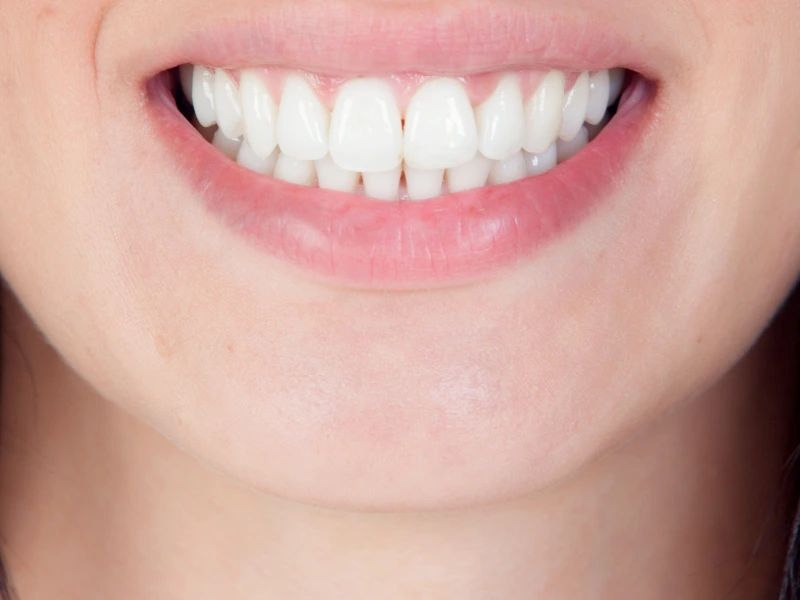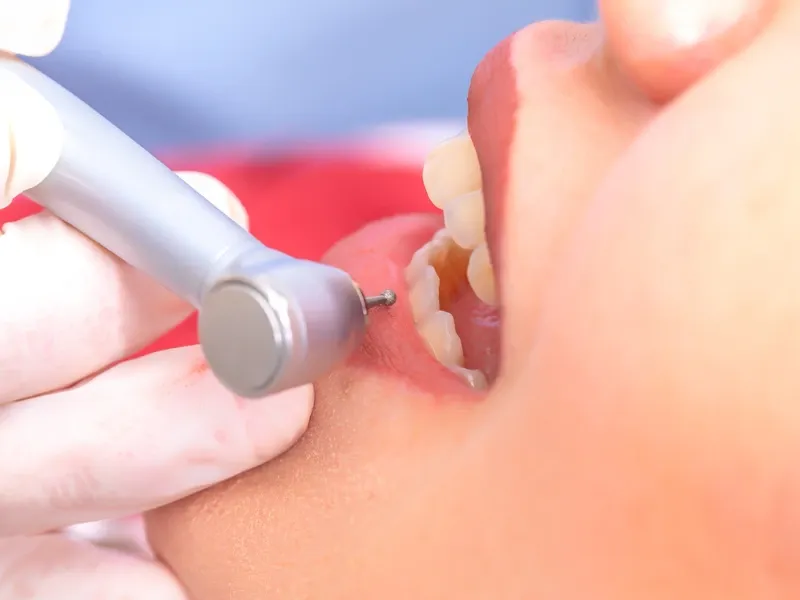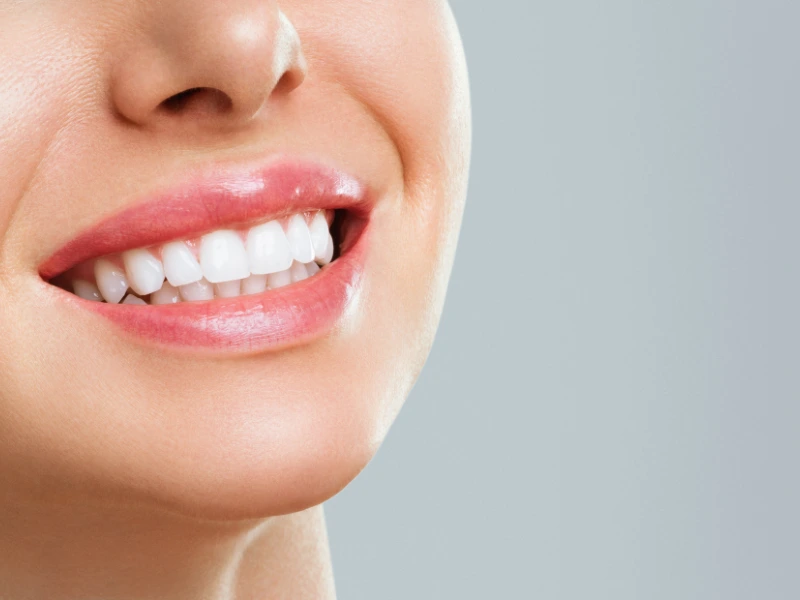
Deep teeth cleaning may cause mild discomfort, but it’s essential for gum health. Book your appointment today for a comfortable, effective cleaning experience!
A deep cleaning teeth procedure is a common dental treatment that many patients wonder about. While it’s more thorough than regular cleaning, it’s completely manageable with the right care.
At Rise Dentistry, we offer professional family dentistry services, ensuring your comfort during the procedure.
This blog will help you understand what deep cleaning entails, the reasons for discomfort, and how we make the experience as smooth as possible. Keep reading to discover how deep cleaning can improve your oral health and what you can expect during the process.
Deep cleaning teeth is a more thorough process than regular dental cleaning. While a standard cleaning focuses on removing plaque and tartar from above the gum line, deep cleaning of teeth targets the areas below the gum line.
This treatment involves scaling and root planing, which helps remove hardened plaque and tartar from the tooth roots. Scaling clears away bacteria and tartar, while root planing smooths the tooth roots to prevent future buildup.
This cleaning is essential for preventing gum disease and enhancing your overall oral health. If plaque and tartar are left untreated, they can lead to gingivitis or more advanced periodontal disease, potentially resulting in tooth loss. Deep cleaning helps treat and prevent these conditions by removing harmful bacteria and promoting healthier gums.
Deep cleaning is an essential procedure for preventing and treating gum disease. When plaque and tartar accumulate on the teeth, they can lead to inflammation and infection of the gums, eventually causing gum disease. A deep cleaning removes the harmful buildup below the gum line, which regular cleanings can't reach.
By removing the plaque and tartar, deep cleaning stops the progression of gum disease. This is important for preventing more severe complications, such as tooth loss. Deep cleaning helps improve gum health, and it promotes healing by eliminating bacteria that can cause swelling, bleeding, and pain.
Deep cleaning clears away plaque and tartar that regular brushing and flossing cannot reach. Plaque eventually turns into tartar, which can only be removed by a dentist. When left untreated, tartar buildup can contribute to gum disease and tooth decay. By maintaining better oral hygiene through deep cleaning, you protect your teeth and gums from these issues.
By undergoing a deep cleaning, you promote better oral hygiene and healthier gums.It reduces the likelihood of infections and contributes to keeping your teeth stable. Regular deep cleaning is a proactive measure to avoid future dental problems and maintain long-term gum health.

A common concern many people have about deep dental cleaning is whether it will be painful. The good news is that although discomfort from deep teeth cleaning pain may occur, it is usually manageable. During the procedure, your dentist will use local anesthesia to numb the treated area, ensuring that you feel minimal discomfort. In some cases, sedation options are available if you're feeling anxious or if your case requires more extensive cleaning.
While the cleaning itself is usually painless, you might experience some mild pain or sensitivity afterward.This is common and typically subsides within a few days. You may experience some gum discomfort as they heal and adapt to the cleaning.
The pain from deep cleans is temporary, and over-the-counter pain relievers can help manage any lingering discomfort. It's important to follow your dentist's aftercare instructions to promote a smooth recovery and maintain healthy gums.

The teeth deep cleaning process is a comprehensive treatment focused on eliminating plaque, tartar, and bacteria from below the gumline. Here’s a breakdown of the steps you can expect:
Before starting, your deep root cleaning dentist will conduct a thorough examination and take X-rays to evaluate the condition of your teeth and gums.
The next stage is scaling, during which your dentist employs specialized tools to eliminate plaque and tartar from both the tooth surfaces and beneath the gumline. This helps eliminate bacteria and prevent gum disease progression.
Your dentist will then perform root planing, smoothing out the roots of your teeth to remove any remaining bacteria and prevent further plaque buildup.
In some cases, your dentist may apply an antibacterial rinse or medication to help reduce inflammation and prevent infection.
After the procedure, you may experience some mild discomfort or sensitivity in your gums. Recovery typically takes a few days, and following your dentist’s aftercare instructions will ensure a smooth healing process.

The deep cleaning teeth process typically lasts between 1 to 2 hours, depending on how severe your condition is. If you have extensive plaque or tartar buildup, the cleaning might need to be split into multiple appointments.
This approach helps ensure your dentist can address each section thoroughly, minimizing discomfort and allowing for better healing. For more complex cases, it’s important to allow enough time for your dentist to clean both the above-the-gumline and below-the-gumline areas.

Managing deep cleaning teeth pain and teeth cleaning sensitivity after the procedure is essential for a smooth recovery. Here are a few suggestions to help minimize discomfort:

Ibuprofen or acetaminophen can help manage any post-treatment pain or sensitivity.

Rinse your mouth with warm salt water to reduce inflammation and promote healing.

Consume soft foods and steer clear of hot, cold, or spicy items for the initial few days.

Use a soft-bristle toothbrush and avoid brushing too hard on sensitive areas.

Apply an ice pack to the outside of your mouth to reduce swelling and discomfort.
Pain relief after cleaning is usually temporary, and these methods can help ease any discomfort until your mouth heals.
The benefits of deep cleaning teeth extend beyond just a brighter smile. Here's how it enhances your overall oral health:

Deep cleaning removes plaque and tartar below the gum line, helping prevent gum disease and tooth loss.

Regular deep cleanings promote healthy gums, reducing swelling, bleeding, and sensitivity.

By removing bacteria and plaque, deep cleaning helps freshen your breath and eliminate bad odors.

Cleaning the areas where plaque builds up helps protect teeth from decay and cavities.

Routine deep cleanings maintain your oral hygiene and help reduce the risk of severe dental problems in the future.
Investing in deep cleaning teeth today leads to better oral health for tomorrow.

If you notice swollen gums, persistent bad breath, or gum bleeding, it's a sign that you may need deep cleaning teeth. These symptoms can be an indication of gum disease or plaque buildup below the gum line. Deep cleaning teeth can prevent further damage and help restore your gum health.
It’s important to visit a trusted family dentistry provider, like Rise Dentistry, for early detection and effective gum disease treatment. Regular checkups allow your dentist to catch issues early and help prevent more serious oral health problems. If you’re experiencing these symptoms, don’t wait—schedule an appointment today at Rise Dentistry.

Deep cleaning is necessary to remove plaque and tartar buildup below the gumline, which can cause gum disease and tooth decay if left untreated.
While deep cleaning helps prevent tooth loss, it’s crucial to follow post-care instructions. If gum disease is too severe, tooth loss can occur.
It’s recommended to wait at least an hour before eating. Stick to soft foods for the first 24 hours to avoid irritation.
Some discomfort or sensitivity may occur after the procedure. Deep cleaning teeth pain after treatment is common but typically temporary.
No, deep cleaning targets the areas below the gumline to remove plaque and tartar, unlike a regular cleaning that focuses on above the gumline.

Deep cleaning of teeth is a vital procedure to prevent gum disease, plaque buildup, and tooth decay. Although deep dental cleaning may cause some discomfort, the benefits far outweigh the temporary pain.
It helps maintain long-term oral health and keeps your smile fresh. If you're unsure whether deep cleaning is right for you, book a consultation at Rise Dentistry. Our team is here to provide personalized care and help you maintain a healthy, beautiful smile.


If you’re considering professional cleaning or teeth maintenance , contact Rise Dentistry today. Our expert team is here to guide you through the process and help maintain your oral health. Call us now at 281-727-0288 or book your appointment online to take the next step toward a healthier smile.

EXCELLENTTrustindex verifies that the original source of the review is Google. "For years, I avoided the dentist due to my anxiety. Dr. Hassan sorathia and their team completely changed my perspective. The office has such a calming atmosphere, and the staff is compassionate and understanding. They explained every step of my treatment and made sure I was comfortable. I'm so grateful I found them and can now take care of my teeth without fear."Posted onTrustindex verifies that the original source of the review is Google. Rise was amazing! They extracted a wisdom tooth from me and the experience was completely pain free. Thank you so much!Posted onTrustindex verifies that the original source of the review is Google. I’m so grateful I found Dr. Sorathia and his wonderful staff at Rise Dentistry! From the moment I called, his office was incredibly accommodating and got me in immediately. He was professional, kind, and patient, and he truly understood my dental anxiety. I never felt rushed or pressured and he welcomed all my questions and explained each step of the process so I always knew what was happening. He made sure I understood all of my options, allowing me to make the most informed decision for my care. I left feeling comfortable, informed, and confident about my treatment. I will absolutely be returning to Dr. Sorathia and highly recommend him to anyone looking for a compassionate and thorough dentist.Posted onTrustindex verifies that the original source of the review is Google. I’m so glad I found this office! Staff is so kind and professional. They keep your comfort at the top of their priority list. Wish I had found them sooner! Can’t recommend this dentist enough!Posted onTrustindex verifies that the original source of the review is Google. Excellent Staff and Dr Sorathia very knowledgeable pleasant ambiance !Posted onTrustindex verifies that the original source of the review is Google. Had a great experience, no wait time, in and out. Everyone was friendly, informative and professional.Posted onTrustindex verifies that the original source of the review is Google. So refreshing to meet an HONEST dentist who isn’t trying to upsell you anything. Just tells you the facts doesn’t try to sway your opinion, just lays out the options based on facts and allows you to choose for yourself what works best for you. I definitely highly recommend!Posted onTrustindex verifies that the original source of the review is Google. Fantastic service! Had a bad tooth that was absolutely killing me for several days. I load going to the dentist so I don’t have a normal one. Set the appointment in the morning and got in that same day. The dentist explained saving versus extracting the tooth and 35 minutes later I was going home. He was extremely thorough and telling me what he was going to do and with the post office instructions. The staff both out front and his assistants were fantastic!! absolutely could not have asked for a better experience and he will be my dentist going forward.
© 2023-2025 Rise Dentistry. All rights reserved.